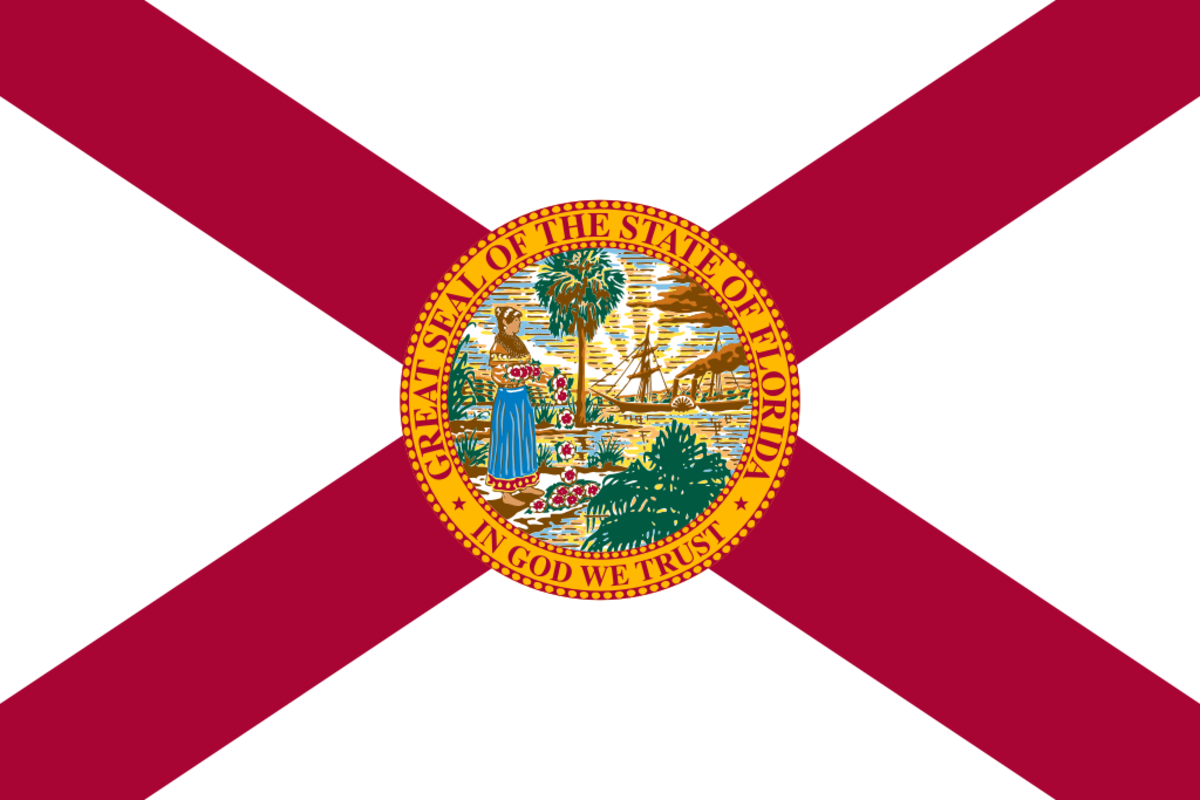Florida Inheritance Laws

Claims and disputes over inheritance are some of Florida’s most common causes of legal action. In 2022, Florida circuit courts saw over 160,000 filings for probate cases, which constitutes 22% of their total filings. Inheritance can be a contentious and emotionally difficult topic. The state’s many laws and exceptions governing who has the right to a recently deceased person’s property make for a complex process.
This page will provide some insight into Florida’s probate and inheritance law. You will find information about inheritance taxes, the differences between the inheritance processes for people who pass with and without wills, and the differing rights of a surviving spouse and children. It will also inform you about valid reasons to contest a will.
Does Florida Have an Inheritance or Estate Tax?
Florida is one of 33 states without an estate or inheritance tax. However, someone collecting inheritance in Florida could still owe federal estate taxes if the monetary value of the property being transferred exceeds $12,920,000. A beneficiary can also owe taxes if the decedent lived in a state that taxes inheritance.
Dying With a Will in Florida
Someone who dies with a will in Florida will have their money and belongings distributed through probate, a set of legal proceedings that determines what to do with the assets of a recently deceased person.
The person in charge of the decedent’s will has to submit the will to a court within ten days of learning about the death. The court will then name a personal representative to handle duties relating to the will. This representative can be an individual or a company, such as a bank or a trustee. The decedent may have named someone as a personal representative. However, the court might disqualify that person if they are no longer mentally and/or physically capable of carrying out their duties, if they were convicted of a felony, if they disobey court orders relating to the probate process, or if the court believes that they improperly managed the estate.
If the decedent did not name a personal representative, their surviving spouse would be offered the role. If they have no surviving spouse or if their spouse does not want the duties of a personal representative, the decedent’s heirs will elect a representative. If they are unable to do so, the court will hold a hearing to determine an appropriate representative.
The personal representative will ensure the estate is distributed according to the decedent’s will. Their duties might include keeping watch over the decedent’s assets and notifying everyone who was named in the will. They are also in charge of settling any of the decedent’s debts.
The decedent’s assets will pay for their funeral costs, debts, and the cost of the probate process before being distributed to those named in their will.
What Happens if You Die Without a Will in Florida?
A decedent who dies without a will is “intestate.” In the case of an intestate death, a court will appoint a personal representative using the rules outlined above. The first right to the position will go to the decedent’s spouse, then to someone elected by their heirs, and finally to someone appointed by the court. The decedent’s assets will be distributed based on the rules of intestate succession.
Intestate Succession in Florida
Intestate succession is the process by which a court distributes the estate of a decedent who did not leave a will.
If the decedent has a living spouse, they are first in line for the estate. A surviving spouse will receive 100% of an intestate decedent’s estate unless the decedent has descendants who are not also descendants of their spouse, such as the spouse’s stepchildren. In this case, the spouse will only receive 50% of the estate, the other 50% going to their stepchildren.
If the decedent was not married when they passed, their estate would be divided between their descendants. Their children will each receive a share. If any child is dead but has surviving children themselves, that child (the decedent’s grandchild) will receive their share.
If the decedent does not have any descendants, the court will distribute their estate amongst their other surviving relatives.
Community Property in Florida Inheritance Law
States with community property laws consider any assets acquired by either spouse during a marriage to be joint property of both spouses. Florida does not have compulsive community property laws. However, a law passed in 2021 allows Floridian couples who wish to make certain assets communal to establish a community property trust.
When a couple establishes a community property trust, each owns one-half of the monetary value of the assets in the trust. Upon death, the decedent’s half of the trust will be distributed based upon their will or intestate inheritance laws.
A couple who married in a community property state and then moved to Florida will not have to set up a community property trust. Under Florida’s Disposition of Community Property Rights at Death Act, a decedent’s spouse can claim ownership of the marital property if they were married in one of the nine community property states in the U.S.
Separate Property in Florida Inheritance Law
Any of a decedent’s assets that have not been established under a community property trust or by the laws of a community property state are considered their own property. These assets are included in the decedent’s estate and will be distributed according to their will or to probate law.
Spousal Rights According to Florida Inheritance Law
A decedent’s surviving spouse has a significant claim to a portion of the estate. As stated above, a surviving spouse is first in line for an intestate decedent’s estate and has first claim to the role of personal representative.
Even if a decedent did not name their spouse in their will, that spouse could claim up to 30% of their probate and non-probate estate. This is known as an “elective share.” A surviving spouse can also claim up to $18,000 as a family allowance, as well as the decedent’s homestead property.
Someone cannot disinherit their spouse in Florida. Unless the decedent and their spouse had previously signed an agreement that the spouse would not receive any of their estate after death, even an estranged spouse still has a claim to the above assets.
Children’s Rights to Inheritance According to Florida Law
A decedent’s children have fewer rights to their estate than their spouse does. As stated above, if all of the decedent’s children are also their spouse’s children, the spouse will receive 100% of the estate. However, if the decedent has any children who are not biological descendants of the spouse, those children will receive 50% of the estate.
Florida probate law does not distinguish between adopted and biological descendants, which means that someone adopted by the decedent has the same claim to their estate as the decedent’s biological children. This also means that someone who was adopted cannot claim an inheritance from their biological parents unless they were named specifically in the will.
Illegitimate Children
Florida considers all biological children of the decedent to be heirs, regardless of the child’s other parent or their relationship with the decedent. “Illegitimate” children of the deceased have the same rights as “legitimate” children. However, a child who did not have a relationship with their father may have to provide proof of their paternity in order to claim inheritance. The decedent may have also previously disinherited a child born out of wedlock, which would prevent that child from inheriting any of their estate.
Single and Childless in Florida Inheritance Law
If someone dies intestate without leaving a surviving spouse or children, their assets will be split evenly among their parents. If they have only one surviving parent, then that parent will receive 100% of the decedent’s estate.
If the decedent does not have any living parents, their siblings will inherit their estate. If they do not have surviving siblings, their estate will pass first to their grandparents, next to their aunts and uncles, and finally to the closest surviving relatives, such as cousins. If the decedent has no surviving blood relatives and a deceased spouse, their assets will go to the closest survivors of their spouse.
If no living person can claim the inheritance of a decedent’s estate, that estate will be escheated, meaning that it becomes the property of the state of Florida. The state will sell off the decedent’s assets and give the profits to the Chief Financial Officer and the State School Fund.
Non-Probate Florida Inheritances
Florida considers some of a decedent’s assets to be non-probate, which means that the court is not involved in their distribution. Household belongings are not distributed through probate so long as their total value does not exceed $20,000. Up to two vehicles owned by the decedent are exempt from probate if their weight does not exceed 15,000 pounds and if the decedent used them (vehicles that the decedent kept as collector’s items might be distributed through probate). Tuition programs can transfer to their named beneficiaries without probate.
A person who wishes to protect their other assets from probate has a few options. A revocable or living trust allows someone to make assets directly transferable to specific parties upon their passing. A transfer on death deed allows someone to name a specific beneficiary for real estate. While these assets can also be willed to their beneficiaries, revocable trusts and transfer on death deeds can make the process of transferring those assets quicker and less expensive.
If the decedent has a surviving spouse, they decide what happens to the non-probate assets. If not, the decision is up to the decedent’s closest heirs.
Unique Situations in Florida Inheritance Law
State probate law has some exceptions for unusual situations surrounding a decedent's cause of death and heritage.
If the decedent was killed by someone named in their will, Florida law excludes the killer from receiving any of the decedent’s assets. Similarly, someone who kills another beneficiary named in the will is exempted from that will. If the killer receives and sells any of the decedent’s assets before being convicted, they are liable for the money they received in exchange.
Florida’s probate law provides special rules for descendants of Holocaust victims. If a grandchild of a Holocaust victim passes intestate with no surviving closer relatives, any relatives who are also descended from the Holocaust victim’s parents can claim the estate. This is the only exception under which second cousins can claim inheritance of an intestate estate.
When Can You Contest a Will in Florida, and How Long Do You Have?
If you believe that a recently deceased loved one’s will is not legally enforceable, you have three months from the day that you received notice of the will to contest it. You can do so by filing a petition for revocation of probate with the court.
There are a number of different reasons to contest a will. It might not be executable if the decedent was not mentally sound when they signed their will. A will could also be invalid if someone took advantage of the testator and used undue influence or duress to force them to make certain provisions. Fraud also invalidates a will. A testator who includes beneficiaries under false pretenses or signs the document without understanding that it is a will, has been defrauded, and a court might void their will.
A will must meet several clerical requirements in order to be executable under Florida law. For example, at least two witnesses must be present for the signing of a will, and they must provide their signatures. If a will has fewer than two witness signatures, or if one of those signatures is forged, you may reasonably contest its validity.
Someone who wishes to claim non-probate property that has already been disbursed has four months from the date that they were notified of the death to do so. Someone can claim escheated property for up to 10 years after it becomes the property of the state.
Expertise.com StaffAuthor
Step into the world of Expertise.com, your go-to hub for credible insights. We don't take accuracy lightly around here. Our squad of expert reviewers, each a maestro in their field, has given the green light to every single article you'll find. From rigorous fact-checking to meticulous evaluations of service providers, we've got it all covered. So feel free to dive in and explore. The information you'll uncover has been stamped with the seal of approval by our top-notch experts.




